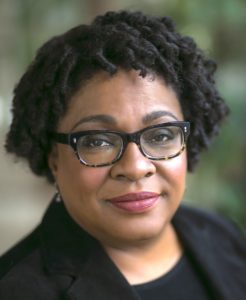The city of Philadelphia has made impressive economic gains over the last year. In 2017, for the second year in a row, the city added jobs at a faster rate than the nation as a whole. It also recorded its highest monthly average job numbers in nearly three decades.
At the same time, Philadelphia has the dubious distinction of being the poorest large city in the nation. Despite healthy job creation and lower unemployment, the city’s poverty rate stands at nearly 26 percent and nearly half of the city’s 400,000 poor residents are living in deep poverty.
These statistics have added a sense of urgency to Philadelphia’s poverty-alleviation efforts. In February, Mayor Jim

Kenney released a citywide strategy, Fueling Philadelphia’s Talent Engine, that shifts the focus of workforce development efforts from short-term job training and placement to long-term career planning and advancement. The strategy has three overarching goals: help Philadelphians acquire the skills that employers need to build a world-class workforce; alleviate barriers to meaningful employment; and build a workforce system that is more coordinated, innovative, and effective.
To carry out this vision, Kenney appointed veteran workforce development leader Sheila Ireland. Ireland is Executive
Director of the city’s newly created Office of Workforce Development, which consolidates the city’s workforce activities into one central agency. In partnership with FUSE fellow Barry Wilkins, Ireland has brought together a group of local businesses, industry organizations, educational institutions and city agencies to identify solutions, starting with how the city can prepare workers for careers in the technology sector.
FUSE spoke with Ireland about this unprecedented collaboration with the private sector and how it is helping to advance Philadelphia’s workforce development goals. Ireland spoke about addressing the challenges of the service economy, creating ladders of opportunities, and staying nimble in government.
FUSE: What is your vision for workforce development in the city of Philadelphia?
Ireland: If I could wave my magic wand, Philadelphians looking to elevate their career would have the resources and opportunities available to them to go as far as their talents and ambition will allow.
FUSE: What do you see as the most promising opportunities to advance that vision?
Ireland: The collective sense of purpose is invigorating. In a lot of rooms that I sit in, people are like, “Oh, well we do…Oh, well you do…Oh, well we could…” That’s powerful. These leaders run huge, complex, burdened systems, but what I’m seeing here in Philadelphia is an unprecedented collaboration among stakeholders.
It’s always been very interesting to me to see how shifts in perspective impact outcomes. We know something is impossible and can’t change until there’s some crack in the window and then all of a sudden you can see, “Ooh, there’s some other new possibility.” And ta-da, it’s done. This is the kind of thing that I’m seeing. Perspective shifts ever so slightly and huge leaps get made.
FUSE: What are the most pressing challenges?
Ireland: The city of Philadelphia has had the dubious distinction of being the deepest poverty large city in the United States for two years in a row. We have some huge issues with graduation rates and brain drain—even though there are more than 100 colleges and universities in the Philadelphia metropolitan area. We’ve lost a lot of our maker base. We don’t manufacture like we used to. We have some really innovative things going on at the shipyard and at the ports, but many of those jobs have essentially disappeared.
“Philadelphia has created its own burning imperative. If you’re here in Philadelphia, you understand what they mean when they say deepest poverty city.”
The struggle is, when you are primarily a service economy, how do you get the living wage that enables people to live the lives of their choice? Our service economy is dominated by “meds and eds,” so there’s an opportunity to build career pathways into these professions and really elevate people’s ability to earn a livable wage. But there are challenges when it comes to preparing people for those particular professions. So, we have our share of challenges.
FUSE: How can industry partnerships help address these challenges?
Ireland: The main focus there is to bring business to the table to help us address the skills gap. Our industry partnerships will inform school district curriculum, community college curriculum, apprenticeship programs, workforce development, vocational schools.
I’m really happy that the decision was made to go with tech as the first industry partnership because it
elevates some key issues that government and educational institutions need to get better at. It forces us to ask, what does preparation for work look like today? We know that it’s about developing learners. What tech CIOs have told us is, they are less concerned with credentials than probably any other industry. They want to see capacity. A CIO wants to open your GitHub account and see what kind of creativity you applied to the program you built. They’re not necessarily looking for you to have a Bachelor’s degree from a big tech institution.
It affords us some leverage in terms of being able to attach people to work more quickly. And the wages are pretty good. But it also presents some challenges. Inherently in tech, there is a digital divide issue, which is always going to be an issue in disadvantaged communities. So, there’s pluses and minuses.
What we’re trying to do is formulate a ladder of opportunities perspective. Every job does not require high-end programming capacity or a Masters degree. There are a series of what we call middle-skills jobs. Working with the tech sector has forced us to broaden our viewpoint beyond, “Go to school. Get a job.” It forced us to think about practical experience, self-motivated learning, educative systems that are not necessarily college-based. It’s a more broad-based perspective on what it takes to attach people to employment.
FUSE: How are you engaging the various stakeholders?
Ireland: We are leveraging the relationships that we have. Through our various agencies, the city has touchpoints to virtually every organization in Philadelphia. We can leverage those relationships. And if we can’t for some reason, one of our community partners usually can. It’s two or three degrees of separation.
FUSE: Can you tell me about the rapid innovation lab [coordinated by FUSE fellow Barry Wilkins] that was held last month? What did you hope to achieve?
Ireland: Through FUSE, we were able to bring a rapid innovation lab to Philadelphia. One of our goals was to demonstrate that we are here to support the conversation, not to drive it. The challenge question for the innovation lab was, “How can the tech industry partnership bridge the gulf between labor supply and labor demand in the tech industry in Philadelphia?” They developed prototypes specifically to address the challenge question. One group specifically honed in on how to diversify the ranks in tech. The team that I was on talked about the strength of convening players to the table and how that can influence the work of tech. In part two of the lab, the group will come back together to try to integrate the four prototypes into an operation strategy.
It will be interesting to see what happens because we are definitely not in the driver’s seat. We know what we want our partners from the private sector to do and they know they’re there to influence how the industry obtains talent. I think they know better than we do how to engage.
FUSE: The idea of letting industry and tech leaders drive the solution is a pretty unique approach. Typically, you see lots of people at the table but government is still in the driver’s seat.
Ireland: Right. Exactly. I understand that is the model. But my favorite sentence is, “How’s that working out for you?” If it’s working, I’m not going to fix it. But you know it’s not working, right? We have the opportunity to start afresh and really bring the perspective of the people who are doing the hiring. To do that, we can’t be prescriptive.
FUSE: Have you found any models or best practices that have informed your approach?
Ireland: My staff is spending a lot of time talking to other cities, because there’s no sense in recreating the wheel. At the same time, you can’t plop ideas from one place to another. They have to be able to work here. So, we are actively trying to figure out how some of these ideas can fit into our particular culture. New York and Seattle have done some amazing things in workforce development.
There’s also something called the Greater Philadelphia Leadership Exchange, an initiative that connects leaders from different cities and sectors and exposes them to new ideas and information. That will be convening in Seattle later this year and we’ll have an opportunity to engage with colleagues from other cities.
FUSE: I know that this work is still very much in process, but are there any lessons that you can draw or insights for other cities embarking on something similar?
Ireland: I think we think of working groups as being unwieldy. It’s too many people. But there was just a furious amount of activity to try to build consensus, and it worked. So I’d say one lesson is to not be afraid of a bigger table than maybe you thought was necessary. The second thing is, take the time to do it right. We’re building the plane as we go off the cliff. We could have used more ramp-up time. And then lastly, I’ve learned that you sometimes need to reign in lofty expectations. Keep them rational and doable. Because we want to get this done. We have some real problems we have to get addressed.
FUSE: There does seem to be a sense of urgency around this work that you don’t always see in government. Where does that come from?
Ireland: Government by its nature is the protector of the status quo. If things are going well, we aren’t always the most nimble or flexible organization. But, whether we like it or not, Philadelphia has created its own burning imperative. If you’re here in Philadelphia, you understand what they mean when they say deepest poverty city. You understand how it impacts you. Government understands how it impacts revenues. I don’t think here in Philadelphia, by and large, you have people sitting at the table who are disconnected. If that is the case, they probably chose not to be at the table. Community and business leaders care about the fate of the city and they’re putting their money where their mouth is.
Rikha Sharma Rani is a Bay-area based writer and journalist. She is the founder and principal writer at Rickshaw Writers. Her work has been featured in The New York Times, USA Today, Politico Magazine, The Atlantic, HuffPost, Oakland Magazine, and more.
[Photo credit Morgan Burke]
